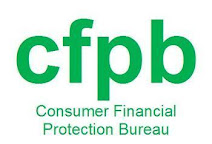A Blog Post by the Consumer Federation of America
Barring a last-minute action by the CFPB or a court intervention, the payment provision in the Consumer Financial Protection Bureau’s (CFPB) Payday Lending Rule will go into effect on March 30th. The rule has received bipartisan support and will protect people from unfair practices. Borrowers will benefit from the rule’s prohibitions on an unfair debt collection method. Policymakers should not delay, weaken, or suspend the rule from going into effect.
The Payday Lending Rule, proposed in 2016 and completed in October 2017, had two parts. Its “mandatory underwriting provision” (MUP) obligated lenders to document a borrower’s ability to repay the debt, required a 30-day cooling-off period after a borrower’s third consecutive loan, and called for a registry to track an individual’s usage of payday loans. It explicitly stated that lenders should consider a borrower’s expenses and not just their income when assessing an applicant’s creditworthiness.
The second part – the payment provision – banned the practice of debiting a borrower’s account after more than two failed attempts, deeming this unfair and abusive. This provision addressed a widespread problem of payday lending: many payday lenders debit an account repeatedly, knowing that customers would incur overdraft fees, as a means to coerce repayment. Some payday lenders used the threat of overdraft and non-sufficient funds fees as an intimidation tactic to collect outstanding loan balances. In some cases, they even attempted to debit accounts that had been closed. Pew research revealed that more than one in four payday loan customers experienced an overdraft fee due to a lender’s attempt to collect a payment from their bank account. The CFPB identified one lender that debited a borrower’s account 11 times in a single day.
As expected, the high-cost loan industry fought against the rule when it was proposed. Their attacks have never ceased, beginning with a 2018 lawsuit and lasting to this moment. While the rule was not challenged with the Congressional Review Act (CRA), the industry kept up the pressure. When the CPFB’s leadership changed with the transition to the first Trump Administration, payday lenders found a more friendly ear for their concerns. In 2018, Acting Director Mick Mulvaney asked for a delay in the rule’s implementation pending the lawsuit’s outcome. On February 6th, 2019, the CFPB announced it would propose a new rule to rescind the MUPs and, in the interim, would delay their implementation for one year, until November 2020.
In July 2020, the CFPB issued a new final rule revoking the MUPs but left the payment provision intact. The payment provision’s rules apply to lenders that offer short-term loans, loans with balloon payments, and any loan with an interest rate greater than 36 percent and give the lender account access.
In recent weeks, as the compliance date has approached, actions have surfaced that suggest the payment provision will be challenged. The Community Financial Services Association – the trade group that filed the initial lawsuit against the rule – filed a new request to the Supreme Court to drop the payments provision. Separately, a letter from the American Fintech Council asked the new Acting Director to clarify that the payment provisions would not apply to Buy Now Pay Later lenders.
The high-cost non-bank lending sector has changed in the last few years. Today, a much higher share of these loans originate from installment lenders. Although they are not traditional payday loans, their structures mirror some of the most abusive components of payday loans. Many make loans at rates far in excess of high-cost subprime credit cards, for example, and some of the larger companies in the space make loans with rates above 100 percent. Some non-bank installment lenders pack loans with add-on fees, use unusual accounting techniques to delay the crediting of principal repayments, and have high rates of loan renewals.
In recent weeks, Congress has taken up legislation to reverse some of the consumer-friendly junk fee rules to rein in junk fees that were finalized by the Biden Administration CFPB. Medical debt on credit reports, overdraft lending by very large financial institutions, and the payment app larger participant rules have all been subject to CRA resolutions. While none have been finalized, the threats are serious.
Suspending the payment provisions is different, as it was preserved under the leadership of a Director appointed by President Donald Trump. The rule has bipartisan support. Changing the rule now would be disruptive. The industry has had years to prepare. Canceling the rule will help no one except the share of installment lenders who want to use the threat of overdraft fees as a coercive scare tactic and would expose millions of struggling households to more expensive and wealth-draining overdraft and non-sufficient funds penalty fees.
Source: https://consumerfed.org/preserve-the-payday-lending-rule/











